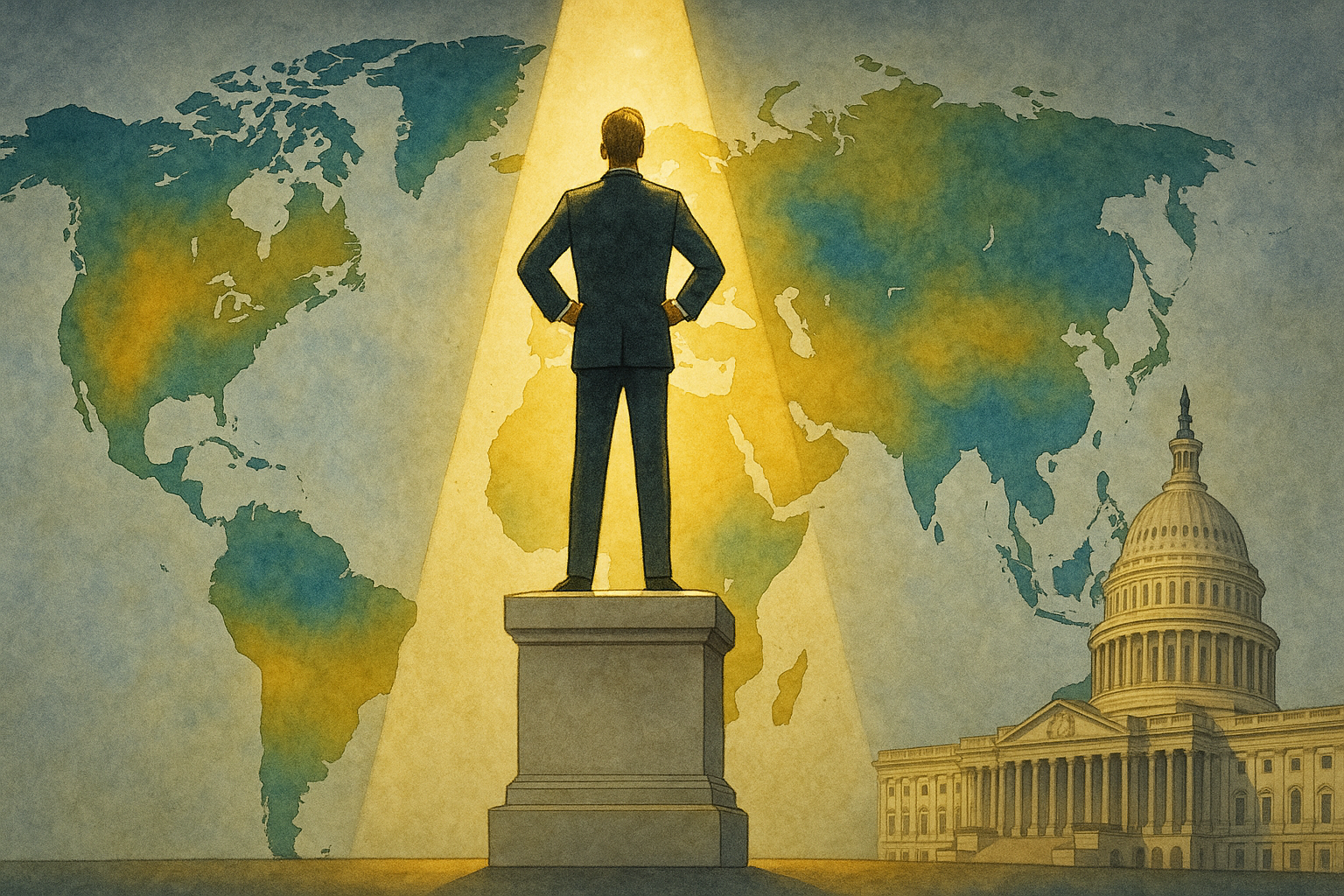Decades ago, Latin America got used to politics barging in through the back door and, without asking permission, taking the seat at the head of the table. When, in 1990, a Japanese-Peruvian agronomist named Alberto Fujimori defeated the acclaimed Vargas Llosa in Peru, analysts sensed that something had shifted in the relationship between citizens and representation. When Hugo Chávez burst in eight years later through the crack of Venezuelan anti-party sentiment, that hunch became a pattern. And when, in the third decade of the century, a comedian with no party backing as Jimmy Morales rose to power in Guatemala, a rural schoolteacher as Pedro Castillo surprised Peru, and a libertarian economist as Javier Milei rode Argentina’s wave of indignation, it became clear that outsiders were no anomaly but an unmistakable symptom of the times.
Thus, the global shock over Donald Trump’s election, the rise of a television comedian like Volodymyr Zelenskyy, or the meteoric emergence of Emmanuel Macron felt oddly familiar to us. For those south of the Rio Grande, the idea of a tycoon, a comic, or a technocrat without a political machine seizing power on the shoulders of popular anger was not an eccentricity, but a routine forged through decades of trial and error. This told us something—not only about our regional political system, but about the global dynamics of representation and how societies channel their frustrations when traditional mechanisms become clogged.
Why were we pioneers? Because the region experienced, earlier and more acutely, three fractures now sweeping the West: democratic promises dashed by successive fiscal crises; party systems incapable of absorbing protest; and a personalized presidentialism that popular culture accepts without scandal. Add to that a media ecosystem—from television talk shows to algorithms—that rewarded instant loudness. Fujimori sang Christmas carols in homemade campaign ads and presented his family as proof of “honesty, technology, and work”; Chávez turned the national broadcast into a perpetual reality show; Milei shouted “Out with the caste!” in TV studios-turned-economic-coliseums while wielding chainsaws as a symbol of cleansing. What Europe now discovers through TikTok, Latin America tested with 1990s domestic television: close-up cameras, blunt messaging, and a salvation epic that leapt over Congress, parties, and experts.
Yet it is important not to confuse the messenger with the fever. Every victorious outsider lays bare structural failures—corruption, inequality, cultural disillusionment—that conventional politics refuses to acknowledge. Demonizing them only reinforces their anti-elite narrative and, worse, ignores the fact that voters judge results with fierce pragmatism. Fujimori was rewarded while he tamed hyperinflation and lost legitimacy when he staged a self-coup; Chávez retained popular devotion as long as oil revenues funded social missions and lost it with growing scarcity; Milei will be judged by whether he can tame inflation and restore real wages—not by his rhetorical outbursts. The success or failure of these projects depends less on their spectacle and more on whether they turn frustration into tangible well-being, everyday security, and a sense of opportunity for the millions who lack it.
The Latin American experience offers three valuable lessons to the global debate. First: the answer cannot be to insulate politics from the citizenry, but to modernize it with open primaries, real-time public oversight, and transparent financing to narrow the moral distance between representatives and represented. Sealing the gates only increases the pressure of murky waters behind the dam. Second: surviving parties are no longer patronage machines or sealed ideological cathedrals, but porous platforms capable of hosting movements, causes, and emerging leaders, even those that unsettle the old guard. Third: the real competition is for the future, not nostalgia, though it may not always seem so. When the dominant political offer takes refuge in the past—or in a present that fails to convince—the path is cleared for a “throw them all out” promise of instant reinvention.
To view outsiders with moral panic or academic condescension is to overlook the fact that they draw from legitimate demands: effective representation, public ethics, and tangible results. Political scientist Guillermo O’Donnell warned of “delegative democracies”—regimes legitimized at the ballot box but concentrating executive power through plebiscitary means in contexts of weak states. Today, as Western states vote on the edge of social fracture and flirt with politics-as-entertainment, that warning sounds less like academic jargon and more like a constitutional first-aid manual.
More than asking ourselves how to stop outsiders, it is worth examining what their rise reveals about our democracies. The greatest risk is not that a comedian, a magnate, or a heterodox economist comes to power; the danger is that, after their term, the deep-rooted causes of frustration remain intact, and a volcanic politics that erupts every few years without any remedy becomes chronic. Latin America, an involuntary pioneer, offers a mirror with veins of warning and opportunity. It reminds us that political representation, like the Earth’s crust, cracks when social pressure finds no release valves. And it also teaches that these cracks can be sealed if institutions are updated, if political parties open up—why not, even, to certain tamed outsiders—and if the citizenry becomes a daily supervisor, not just a mere spectator between elections.
Ultimately, outsiders are not the exception: they are a reminder that democracy is a contested, living process, whose legitimacy is renewed project by project, vote by vote. Ignoring that tectonic truth would indeed be the real anomaly.
*Machine translation, proofread by Janaína da Silva.













